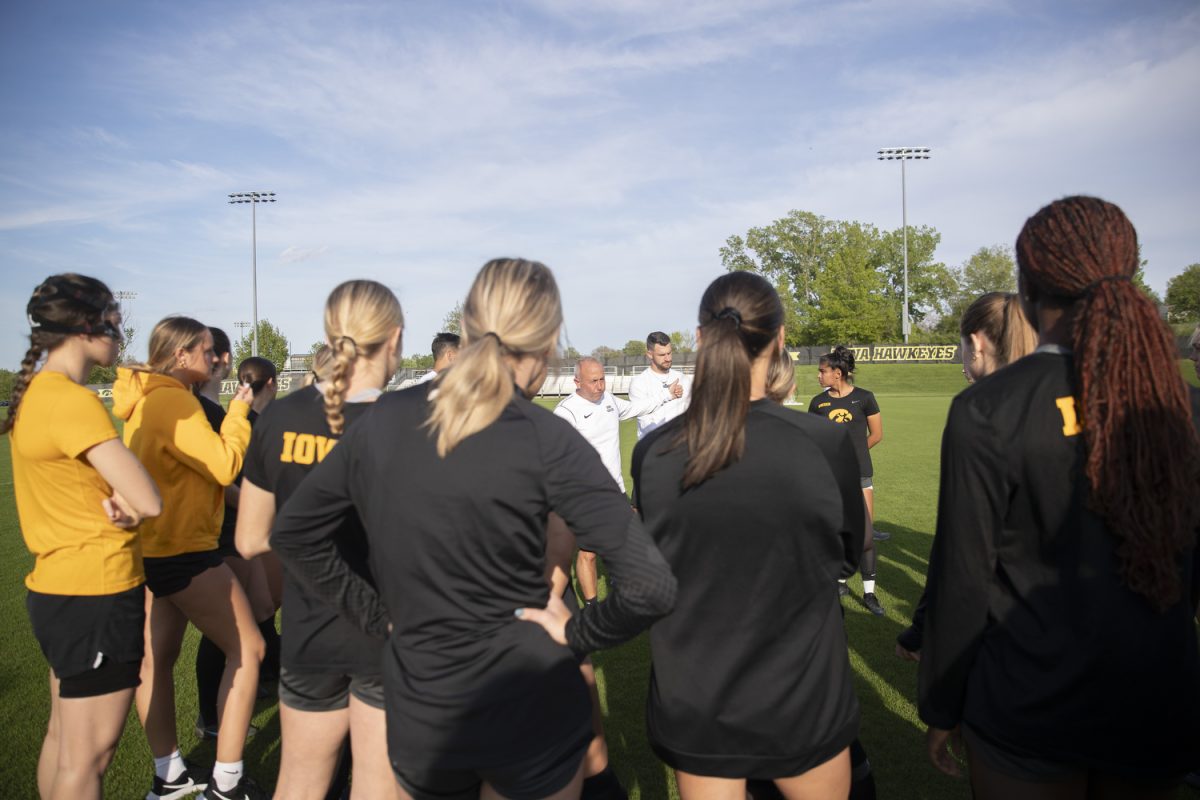On average, a collegiate cross-country runner will cover 80 to 90 miles a week in an attempt to keep himself physically prepared for competition.
How these athletes prepare to run those 90 miles may be the more important aspect to remaining successful, though.
“If you train hard, you have to recover hard,” said head men’s cross-country coach Larry Wieczorek. “That means eight hours of sleep a night and good nutrition with a special emphasis on carbohydrates.”
Wieczorek says keeping the runners’ bodies in optimum racing shape takes special attention and sacrifice over the course of a season — sacrifice that often leads to a diminished social life.
“If you look around [Iowa City] on a Friday at 3:30 p.m., you’ll see a lot of ‘Joe College’ type kids enjoying an adult beverage,” Wieczorek said. “At the same time, a college runner will be over at Ashton [Cross-Country Course], pounding out 10 or 12 miles at a five-minute pace. You have to lead the life of a runner.”
To live the life of a runner to the fullest, it’s important for athletes to keep their weight down.
“If you want to handicap a race horse, you have it gain a pound or two,” Wieczorek said. “That’s like if one of my runners gains weight. It’s a handicap.”
As a fifth-year senior, Brendan Camplin knows all too well about what he should and shouldn’t eat to avoid gaining a “handicap” during the season.
“The nutritionists make sure you understand the importance of nutrition, and [Wieczorek] helps you follow the guidelines,” said Camplin, who was held out of the Hawkeye Invitational with a sore foot.
“Drink skim milk instead of 2 percent. Eat whole grain bread and pasta. Vegetables and fruit and all of that. You don’t want to let your weight get too low, though. You don’t want to get depleted.”
For younger members of the team, keeping to a strict diet can be difficult sometimes.
“You try to eat healthily most of the time, but you have those days where you don’t eat that healthily, too,” said redshirt freshman Nick Holmes. “They leave it up to us. We probably eat 1,000 to 2,000 more calories a day then the average person because we burn so many calories running all the time.”
Wieczorek also expects discipline when it comes to his runner’s social life. For Holmes, the key to staying out of trouble is to fill his time with activities that won’t put him in a difficult situation.
To help his squad in that regard, the 23-year head cross-country coach gives his team a little bit of incentive to keep a sound body and mind.
“These guys will finish training, and it will be 6 p.m. or something. Well, the next day, they are getting up at 7:30 in the morning,” Wieczorek said. “I treat my team like men. Trust is a big part of coaching. They are going to make the right choices.”
“And having them meet me outside the Old Capitol at 7:30 in the morning, well that keeps them from staying out too late.”






